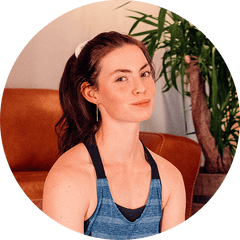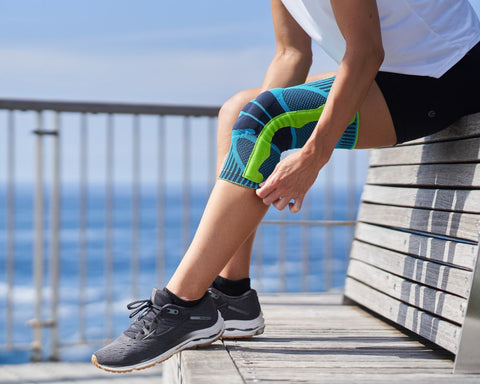The benefits of the bodyweight squat
Squats work a lot of muscle groups. When done consistently, frequently, and with progressive overload (that is, gradually increasing how many squat reps or sets you do over time), this exercise will strengthen the quads, glutes, hamstrings, and the core - including your obliques and erector spinae muscles.
These muscle groups are essential for protecting your hips, knees, and back in everyday movements like walking and bending, as well as physical activities like jogging and surfing. Practising with bodyweight squats is also essential to ensure your joints stay safe before trying weighted or resisted variations.
As bodyweight squats aren’t intensive, you’ll need quite a few reps for the best effect. However, the relatively low intensity of this exercise also makes it good to include in a knee rehab routine following injury or surgery (or even strengthening the muscles to relieve arthritis pain).
How to do proper squats
- Stand upright with your spine neutral and your feet positioned just slightly wider than your shoulders. Point your toes slightly outward, away from the midline of your body.
- Alternatively, you can place your feet shoulder-width apart and point your toes forward.
- Engage your core and retract your shoulder blades to keep your spine as neutral as possible throughout the squat.
- Using your arms for balance, sit back and lower your body until your thighs parallel the ground. Your knees should not go past your toes as you squat down.
- Pause briefly, then push down into your heels to rise and complete the repetition.
- Complete 10-15 reps before taking a rest, and repeat these sets according to your ability.
We recommend doing your first couple rounds of squats in front of a mirror so you can see how you move and get a feel for the proper form. While this mainly applies to beginners, even experienced squatters should check their form from time to time and adjust accordingly.
Wear a knee brace for squatting
Sports Knee Support
While a Sports Knee Support isn’t strictly necessary for bodyweight squats done with healthy knees, it still has a few notable benefits.
- Compression reduces the rate of muscle fatigue
- It improves your awareness of how your body moves throughout the squat
- And it helps protect the knee joint from harm
About Lucia Schauerhammer:

Lucia guides you through some strong exercises from the comfort of your home. The body weight exercises are designed to work your abs, legs and arms. With a background in track and field, she knows which exercises are the most effective to train muscular strength, low-impact flexibility and endurance. Ready? Let’s get started!




















